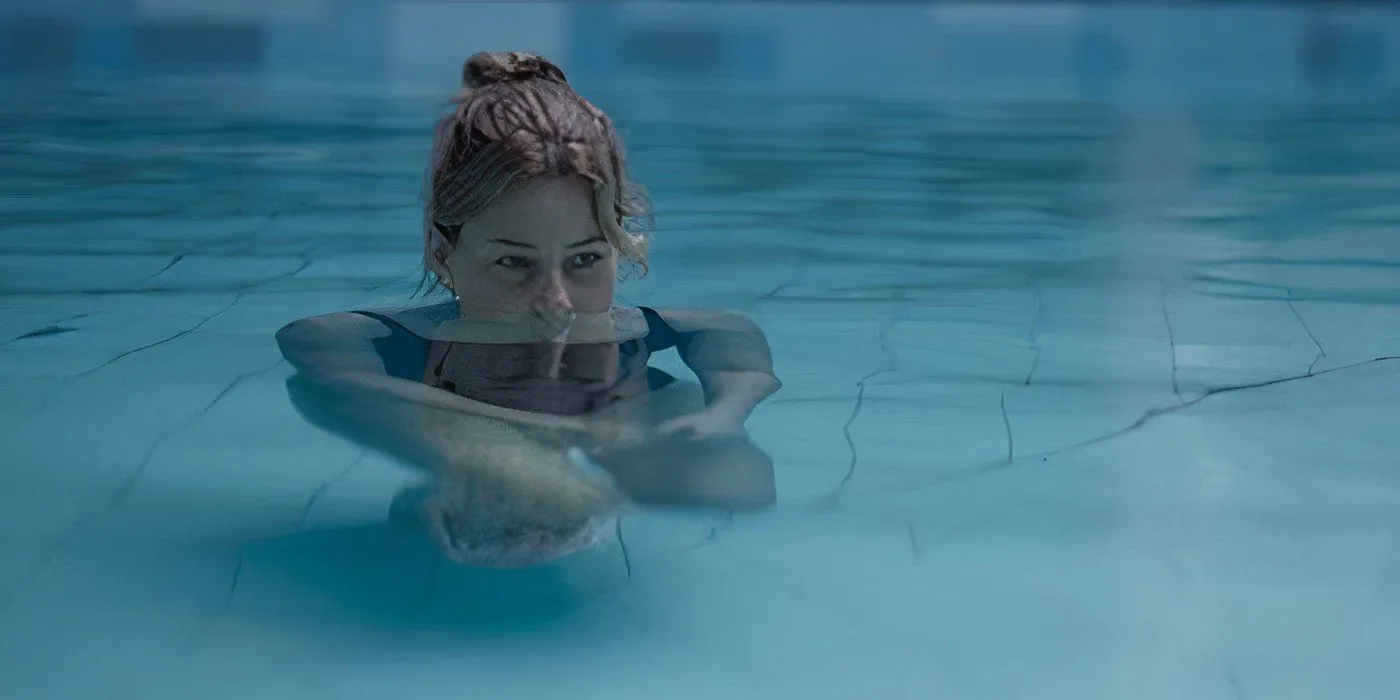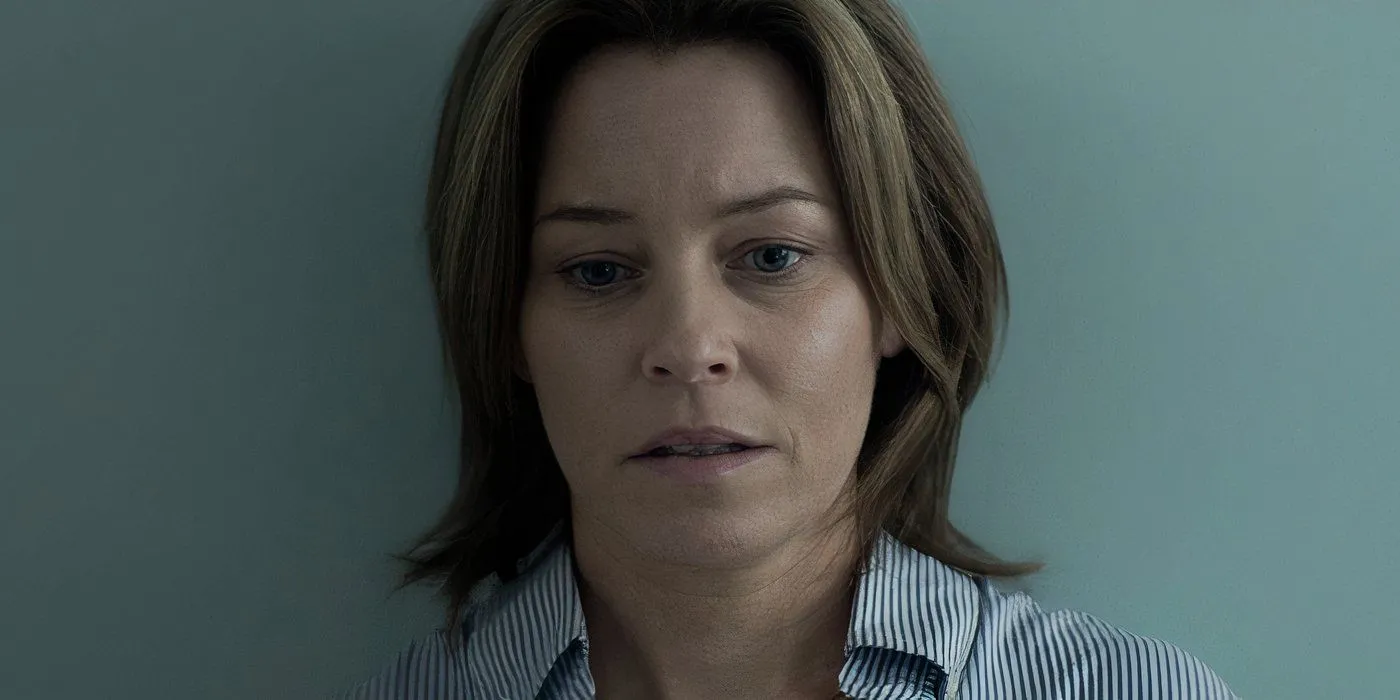Elizabeth Banks commands the screen as distinguished surgeon Dr. Liz Taylor, grappling with turmoil both personal and professional in A Mistake. Adapting Carl Shuker’s novel, director Christine Jeffs crafts a nuanced portrait of accountability through a deceptively simple medical drama.
During a routine procedure, Taylor’s inexperienced registrar, Richard, makes a mistake with lasting consequences. A young patient named Lisa doesn’t survive complications, throwing the hospital into disarray. Taylor insists on taking full responsibility to protect Richard, unprepared for the storm ahead. Questions linger over duty and mistake, liability and lives.
Resolute in her skills, Taylor faces conflicts internally and externally as the tragedy’s effects spread. Hospital administration and the patient’s grieving parents demand answers, testing Taylor’s discipline and principles. Banks skillfully brings the star surgeon’s unraveling to life, navigating trauma with a tangible humanity. Subtleties in directing and storytelling probe complex issues of ethics raised by this “harrowing series of events.”
A Mistake burrows beyond sensationalism to contemplate what we truly owe one another. In Taylor’s evolving journey, it finds profound insights into accountability, forgiveness, and our shared nature. Banks shines in a layered leading role that cements her dramatic talents, perfectly calibrating emotion in Jeff’s compelling film.
Exploring Consequence and Care
A Mistake delves deeply into how acts both great and small can resound through lives in unexpected ways. As distinguished surgeon Dr. Liz Taylor, Elizabeth Banks navigates a harrowing chain of events set in motion by a brief mistake in the operating room. Director Christine Jeffs explores the film’s impactful themes with subtlety and care.
We’re drawn into Taylor’s world of discipline and compassion as her skilled work saves a patient. But when Taylor’s young registrar Richard acts hastily and the woman doesn’t survive, complicating reactions ensue. Taylor insists on responsibility in protecting Richard, little realizing how challenges would mount.
Grieving parents demand truth while hospital administrators push spin. Taylor’s beloved nurse Robin distances herself in self-preservation as the renowned surgeon finds herself increasingly isolated. A shocking tragedy strikes further blows just as accountability emerges as her guiding light.
Jeff dissects the nuances of consequence through Taylor’s poignant journey. While medical protocols aim to extract lessons, the film understands harm comes from a place of fallibility, not malice. Taylor learns complexity exists where some see only liability. How we weather crises and fulfill our duties to one another, even in failure, comes through most clearly in her moving act of accountability’s highest form.
Subtly directed and deeply felt, A Mistake burrows past sensationalism. It illuminates how our shared frailties bind us and the compassion that arises when we acknowledge such bonds. For all its frank considerations of institutional practices and personal responsibility, the film’s greatest strength is a quietly profound spirit of care for patient and healer alike.
Quiet Mastery Behind the Scenes
Christine Jeffs’ direction in A Mistake proves a deft guiding hand. She approaches heavy subject matter with subtlety and care. Jeffs tells Liz Taylor’s story by zooming in close yet maintaining a wide lens. We feel the surgeon’s turmoil through small, expressive moments rather than overt dramatics. Scenes flow seamlessly, enhanced by natural performances and beautiful New Zealand scenery.
That seamlessness stems from Jeffs. She coaxes realism from her cast without sensationalism. As with the book, Jeffs prioritizes complex human truths over superficial conflicts. This focus yields a poignant, resonant film that burrows deeply into its characters.
At the heart of A Mistake lies Elizabeth Banks’ tour de force as Liz. Banks walks a nuanced line between compassion and detachment, strength and vulnerability. As failures accumulate, she subtly lets Liz’s composure fracture until internal struggles spill forth. Banks inhabits this walking contradiction with humanity and grace. We feel for Liz through Banks’ unshowy command of facial expression and body language.
Supporting actors match Banks’ lived-in approach. Simon McBurney chills as the weasely hospital administrator more fixated on reputation than patients. Mickey Sumner and Rena Owen likewise imbue brief roles with dimension, whether as Liz’s caring partner or bereaved mother. But a special note goes to Richard Crouchley for bringing layered nuance to Richard, the guilt-wracked registrar at the story’s center.
Together, Christine Jeffs’ understated direction and her actors’ soulful work bring A Mistake’s impactful themes to visceral life. Their quiet mastery ensures this drama, for all its bleak subject matter, offers empathy, insight—and perhaps solace—to all seeking truth and redemption within medicine’s fraught domain.
Emotional Depth Amid Sensitivity
A Mistake handles delicate subject matter with care. Scenes depicting Liz’s surgery pack visceral impact yet remain tastefully done. We see lifelike struggle, not glorified gore. And Jeffs ensures even brief visuals linger meaningfully.
More affecting are the film’s interior journeys. Banks imbues Liz with stunning vulnerability, baring a soul slowly unraveling under pressure. Containing her stress becomes harder as mistakes multiply. We share her turmoil yet never judge, so dexterously does Banks guide our empathy.
Jeffs likewise elicits understanding for all. Liz’s regret feels genuine, not maudlin. And Crouchley’s Richard navigates shame in a heartbreaking yet honest light. We sympathize with their plight yet also respect anger from Lisa’s bereaved parents. No character comes across as villain or victim—all struggle with complex human truth.
This nuanced handling spreads to A Mistake’s examination of institutions. The bureaucracy here doesn’t serve as a mere villain but reflects reality—people get stuck in systems not always tuned to individuality. And the film finds hope even where it portrays flaws. By depicting each perspective with care, Jeffs highlights our shared stake in caring for one another.
Overall, A Mistake proves thoughtful, emotionally probing work. Sensitive topics emerge not as sensational plot points but as vessels for deeper empathetic insight. Through understated yet masterful direction and acting, it illuminates grief’s complexity and the comfort found when meeting hardship with openhearted wisdom. Most of all, it reminds us that even in failure, our shared humanity remains stronger than any mistake.
Facing Hard Truths With Empathy
A mistake doesn’t provide easy answers but invites insightful reflection. By watching Liz’s journey, I found myself questioning my own perceptions. Her struggles in a complex system, navigating personal duty versus rules, felt all too familiar.
Like Liz, I saw no villains—only people limited by bureaucracy or grief. But I also saw resilience in facing hard truths with empathy. Though painful, Liz’s final conversation with Lisa’s parents offered closure, powering an impactful finale. Their shared humanity, not anger or blame, carried the day.
This resonated deeply as issues raised about transparency in life-and-death careers mirrored broader societal tensions. A mistake suggests unflinching self-examination, not accusation, builds understanding. And in understanding, maybe reform happens gracefully.
Not an “entertaining” watch, it was an emotionally draining one. Jeffs pulls no punches, portraying humanity’s frailty. But she, like Liz, does so with care. Banks striking that fragile balance anchors the film compellingly.
It was this hope in our ability to connect despite failures, not any tidy resolution, that lingered in my thoughts. Days later, A Mistake remains a thoughtful, melancholy companion. It moves us not to answers but shared burdens, reminding us that even in our darkest moments, empathy is the light that guides us home.
Striving For Authenticity
A Mistake immerses you in its world through visceral yet restrained craft. Cinematographer Andrew Commis shoots in a way that feels real, tapping emotion through spare but expressive framing. Subtlety defines the production design too—Lisa’s hospital room or Liz’s worn kitchen convey depths with just a glance.
Character always comes before style here, but style enhances character. Frank Ilfman’s melancholy score does just that, lending the right weight without melodrama. It understands that sometimes silence speaks loudest.
Christine Jeffs’ script deserves praise for its spare dialogue. Few cliches pollute this story, and conversations feel genuine. Painful truths are expressed through what’s left unsaid as much as what’s said. It’s a testament to her faithful novel adaptation that complex struggles seem blisteringly real.
Presented at Tribeca, this drama left me changed because it strives for authenticity above all. Major festivals know quality, though they may lack flash. A Mistake has that in spades through its technical polish, subtly serving poignancy. Some films just stick with you—this one does through its deep humanity and restrained excellence in all fields of its making. A stay-with-you film for sure.
Carrying Its Message With Care
A Mistake lingers in the mind long after viewing through its humanity and thoughtful exploration of difficult themes. While a challenging watch at times, Christine Jeffs’ drama is a compelling character study delivered with nuance and care.
This film sticks with you because it tackles complex issues like accountability and medical ethics with insightful consideration. Jeffs examines these questions through Liz’s emotional journey, not with easy answers but with open questions. It’s a moving reflection on our shared responsibilities to one another.
The big reasons to see this film come back to two things: its heart and Elizabeth Banks’ stellar lead performance. She navigates Liz’s unraveling humanity and vulnerability in a way that feels deeply authentic. Banks deserves praise for bringing such a challenging role to life with grace.
Together with a talented cast and crew, she brings authentic faces and feelings to this story. It resonates because of that, even when confronting unsettling topics. A Mistake carries its important message in a sensitive manner we’d all do well to absorb. For memorable characters and a thought-provoking drama, this film has much to offer movie lovers.
The Review
A Mistake
Christine Jeffs' A Mistake proves a superbly acted and vividly human drama. With compassion, it examines how easy it is for lives to shatter in the aftermath of a moment's mistake. Led by a powerful performance from Elizabeth Banks, the film navigates difficult waters through nuanced storytelling that sticks with you long after. While sometimes unsettling, A Mistake offers an impactful glimpse into ethics, accountability, and the fragility of control. It succeeds in raising meaningful questions through emotionally authentic characters.
PROS
- Compelling and nuanced character study of Liz Taylor
- Powerful and emotionally raw lead performance from Elizabeth Banks
- Thoughtful examination of complex themes of medical ethics and accountability
- Authentic and impactful exploration of human vulnerability and fragility
- Understated yet resonant direction and storytelling by Christine Jeffs
- Provocative and lingering in its portrayal of unintended consequences
CONS
- Occasionally bleak and unsettling tone may not appeal to all viewers.
- Slow pace and lack of resolution could frustrate some audiences.
- Subtle storytelling risks being missed or underappreciated by some.



















































Discussion about this post